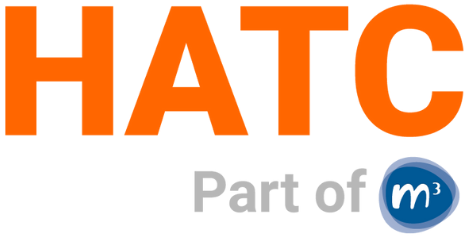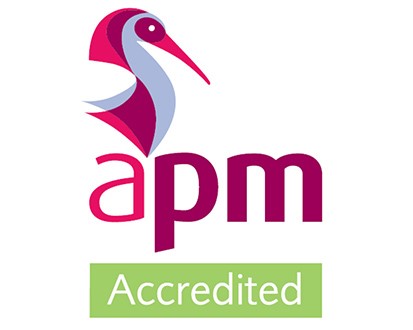Project Management for Affordable Housing Development: Theory & Practice
This is the best course for using in the day job that I’ve ever been on, there was so much useful information in here. I wouldn’t hesitate to recommend HATC for the delivery of this course. This course will, without question, complement your day to day project management skills
Attended the Project Management for Affordable Housing Development course.
Overview
The course offers the opportunity to acquire a professional project management qualification from the Association for Project Management (APM). It is set within the world of affordable housing development & regeneration.
It is an intensive and demanding course with 100–120 hours of studying, depending on experience. Approximately 60 hours of that is classroom-based & virtual learning (9 days), so candidates will need to devote 40–60 hours of self-study to the course. About 15-20 hours will be homework over the period the course runs. Approximately 25–45 hours of pre-course study is required. This should start mid-summer, to be ready for the course in the autumn.
The course is aimed at staff with two to five years of experience of delivering affordable housing projects.
Course Plan
The course focuses on two specific areas:
Project Management Theory
The syllabus covers formal project management skills from project inception to closure. It covers the professional tools and techniques used in project planning, control and delivery. It is relevant for members of both New Business and Delivery teams. Successful candidates obtain a professionally recognised qualification, the PMQ. A list of the PMQ syllabus topics is set out at the bottom of this webpage or can be downloaded here.
Project Management Practice
These exercises require students to use the knowledge they have acquired in the Theory section to plan and control a case study based on a real affordable housing scheme.
Format
This is a blended course mixing classroom and virtual delivery. There are two classroom sessions: one at the start of the course to allow everyone to meet one another, and the other at the end of the course for final revision and exam. In between there are 4 days of virtual delivery, on the Tuesday and Thursday of each week to maintain momentum.
To view the planned dates, view the the list of open course dates.
You should expect to do 1–2 hours private study each evening during the study periods, consisting of completing mock exam questions and revision. You should also expect to undertake planned revision and submit answers to mock exam questions between the study periods, requiring approximately 7–10 hours work each week. Our tutors will provide on-line feedback to answers to examination questions that you submit.
Our experience shows that exam success is directly related to:
- Whether the pre-course reading has been undertaken, and completed sufficiently in advance of the course that the ideas and concepts have had an opportunity to begin to settle
- Whether students use the opportunity to submit mock exam questions – this helps the tutors give targeted and helpful feedback
- The amount of time that students put into revision and exam answers
Assessments
The main assessments are:
- The PMQ examination: This is set and marked by the Association for Project Management (APM). The APM is the Chartered body for project management in the UK. Successful candidates will attain the professional qualification PMQ (Project Management Qualification). Assessment for the PMQ part of the course will take place at the end of Week 3. Other assessments in the form of mock PMQ exam questions coursework will also be set during the course, as described above.
- The Project Management in Practice exercises: This will be undertaken by the students in groups throughout the study weeks.
Required Reading
Pre-course reading:
- PMQ Study Guide: Read this first. It is the official APM Study Guide for the exam. Available for purchase here.
- The PMQ Primer (2017) by Robin Kay: Read this next. It covers the same ground as the Study Guide (above), but explains the syllabus topics differently, which is helpful. It is available to purchase from Amazon here.
- The HATC PMQ Student Handbook: Read this next. A PDF copy is sent to you as soon as you have booked and paid for your place on the course.
- APM Body of Knowledge 7th edition: Read this last. It gives a brief overview of all the topics addressed in PM. As the APM’s summary of professional wisdom, it is mandatory reading, but (it has to be said), it’s harder work than the others! Available for purchase here.
You will be expected to study these in your own time. The self-study time needed is approximately 40–60 hours:
- 25 – 45 hours of pre-course study, reading and thinking about the pre-course reading. This study should start mid-summer, to allow you to assimilate the information you will be getting, and then process it, to begin to develop an understanding of the topics. It takes time for the information overload to move from a being a mental whirlwind, and settle into understanding. You will need to give yourself that time!
- 15 – 30 hours during the course period, depending upon experience and the amount of pre-course study undertaken
Entry Requirements
Applicants must have:
- 2- 5 years experience of delivering projects within the affordable housing sector, AND
- Hold the APM’s Project Fundamentals Qualification (PFQ) (previously known as the Introductory Certificate in Project Management) or PRINCE2 Foundation.
For applicants who do not already hold the PFQ, HATC runs this 2-day course regularly.
Certification
Successful students will obtain:
- A recognised professional qualification in project management – PMQ: the Project Management Qualification. This is awarded by the Association for Project Management
- An HATC Certificate covering the application of the project management skills learned in a series of case studies.
Andrew Drury
Trainer
Andrew has worked in the affordable housing sector for nearly forty years, delivering affordable housing developments and regeneration schemes since 1983, from Admin Officer to Group Development Director for a major regional HA. He is also the founder of HATC.
David Atkinson
Tutor
David is a Fellow of the APM. He is a highly experienced tutor and exam marker for the APM.
Nasreen Asaria
Administrator
Nasreen is the initial contact point for bookings, course administration and when students are off-site.


